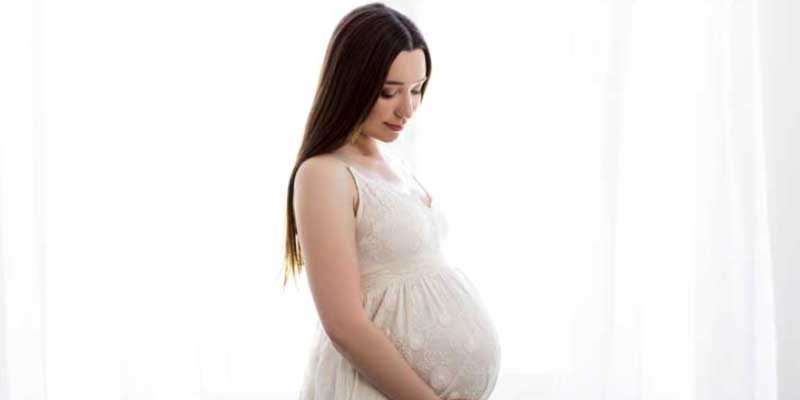Many on-going IVF pregnancies, infertile women, and patients wanting IVF/ IUI have been struggling because of the disruption caused due to the COVID-19 pandemic

The welfare of our patients at the IVF centre of Sir Ganga Ram Hospital, undergoing fertility treatment as well as their pregnancies, are foremost in our mind. To make treatment as safe as possible, we have introduced several changes. These are as following:
- Video consultations – We have introduced tele and video consultations on Myfollowup, counselling and consents by receptionists to reduce footfall in the clinic as well as the IVF centre during the COVID-19 pandemic.
- Face masks – In line with Government advice you must wear a face mask when entering the clinic or hospital. Our staff will also be wearing safety gear as per national guidelines dependent on the procedures that they are undertaking.
- Reception – You will be met at reception by one of our staff. They will ask you about any symptoms, request that you use the gel to clean your hands then take your temperature.
- Moving about in the clinic – You will then be directed as per your appointment. Please adhere to the social distancing rules of two metres.
- Cleaning – A rigorous cleaning programme will be carried out throughout the day, paying attention to handrails, door handles, toilets, and areas with a high touch point.
- Hand sanitiser stations – These are available at the reception and throughout the clinic and IVF centre.
For most people, the treatment cycle will be the same as before the pandemic, with us focussing on your safety alongside success rates. If you have a significant underlying medical condition, then we may discuss altering your treatment to maximise safety for you at this time.

If you test positive for coronavirus prior to your egg collection, we will need to pause your treatment until you are well again. The best is to wait for 28 days after recovering from Covid-19 before starting treatment. This is for the safety of you, your embryos, and those around you.
If you test positive after egg collection, any embryos will be frozen, giving time for you to recover before any transfer. Please be assured that frozen embryo transfer now achieves similar or higher success rates than fresh embryo transfer.

Generally, pregnant women do not appear to be more likely to be seriously unwell than other healthy adults if they develop coronavirus.
Majority of pregnant women will experience only mild or moderate cold/flu like symptoms
As this is a very new virus, we are just beginning to learn about it. There is no evidence to suggest an increased risk of miscarriage.
Transmission of the virus from a woman to her baby during pregnancy or birth appears possible. However, this does not seem to cause a problem with the baby’s health after birth
It does not seem that the virus causes problems with a baby’s development during pregnancy.
.

All available evidence suggests that pregnant women are at the same risks as other healthy adults if they develop coronavirus. Majority of pregnant women experience only mild or moderate cold/flu-like symptoms. Cough, fever, shortness of breath, headache and loss or change to your sense of smell or taste are other relevant symptoms.
If you develop more severe symptoms or your recovery is delayed, this may be a sign that you are developing a more significant infection and need specialised care. Please contact the government helpline or your clinician.
Most women who are more seriously ill are in their third trimester, therefore the importance of social distancing from 28 weeks of pregnancy is more important.

Emerging evidence suggests that transmission from a woman to her baby during pregnancy or birth is probable. It is important to emphasise that in all reported cases of new born babies developing coronavirus very soon after birth, the babies were well. Given current evidence, it is considered unlikely that if you have the virus it would cause problems with your baby’s development.
Across the world, emerging reports suggest some babies have been born prematurely to women who were very unwell with coronavirus. It is unclear whether coronavirus caused these premature births, or whether it was recommended that their babies were born early for the benefit of the women’s health and to enable them to recover.

The most important thing to do is to follow guidelines issued by the government. For pregnant women and the rest of their households, this includes:
- Wash your hands regularly
- Use a tissue when you or anyone in your family coughs or sneezes, discard it and wash your hands
- Avoid contact with someone who is displaying symptoms of coronavirus such as high temperature and/or new and continuous cough.
- Avoid non-essential use of public transport when possible.
- Work from home, when possible.
- Avoid large and small gatherings in public spaces, noting that pubs, restaurants, leisure centres and similar venues are currently shut as infections spread easily in closed spaces where people gather.
- Avoid gatherings with friends and family; keep in touch using remote technology such as phone, internet and social media.
- Use telephone or online services to contact your doctor or other essential services.

Pregnancy in a small proportion of women can alter how your body handles severe viral infections. This is something that obstetricians have known for many years and are used to dealing with. We know that some viral infections are worse in pregnant women; however, all available evidence suggests that pregnant women are at no greater risk of becoming seriously unwell than other healthy adults if they develop coronavirus.

- Studies have found that majority of women who have become severely ill were in their third trimester of pregnancy, emphasising the importance of social distancing from 28 weeks of pregnancy.
- Pregnant women over the age of 35, those who are overweight or obese, and those women who have pre-existing medical problems, such as high blood pressure and diabetes, also appear to be at higher risk of developing severe illness. Additional shielding measures may be advised on medical grounds for pregnant women with significant heart disease (congenital or acquired).

As a precaution, you should follow government advice about social distancing, stay away from public places and avoid anyone who has symptoms suggestive of coronavirus. It is still considered necessary for pregnant women to go for exercise and to attend antenatal appointments.
If you are in your third trimester (more than 28 weeks’ pregnant) you should be particularly attentive to social distancing and minimise any contact with others.
Keeping being active and hydrated as both are important to reduce the risk of blood clots in pregnancy. Take supplements in form of vitamins and minerals to boost your immunity.

- Even during the pandemic, it is important that if you have any concerns about yourself or your pregnancy at any time, you contact your doctor through telemedicine and book appointment as soon as possible to check your symptoms. They will be able to advise whether a visit to the hospital during the coronavirus pandemic is necessary, and ensure you receive the care that you need.
- Whilst hospitals are trying to minimise people entering in order to reduce the spread of the coronavirus and to limit the impact on services, they are organised in such a way that they are able to provide all acute services especially in case you have a bleeding episode during pregnancy or risk of ectopic pregnancy.

- We understand that the coronavirus pandemic will inevitably result in an increased amount of anxiety in the general population, and this is likely to be even more so for pregnant women as pregnancy represents an additional period of uncertainty.
- Isolation, bereavement, financial difficulties, insecurity, and inability to access support systems are all widely recognised risk factors for mental ill-health. The coronavirus epidemic also increases the risk of domestic abuse or violence.
- Please discuss your problems with your clinician who can provide information or guide you towards support to keep you safe.

Becoming pregnant during the coronavirus pandemic is a matter of personal choice. However, it is recommended that when considering a pregnancy, women and their partners consider the risks of coronavirus transmission associated with routine contacts with healthcare professionals during pregnancy, particularly if pregnancy complications may necessitate frequent hospital attendance.

The changes adopted during the pandemic are with the following aims:
- Reduce the number of people coming into hospitals where they may encounter other people and spread the virus.
- Ensure staff are not overwhelmed and stretched too far by the additional strain on services, which could be due to staff sickness and self-isolation as well as the higher numbers of patients needing care.
These changes are a way of ensuring we deliver the best care without overloading our services, as well prevent your exposure to the risk of other people which are crucial during the coronavirus pandemic. Your safety is our first priority.






